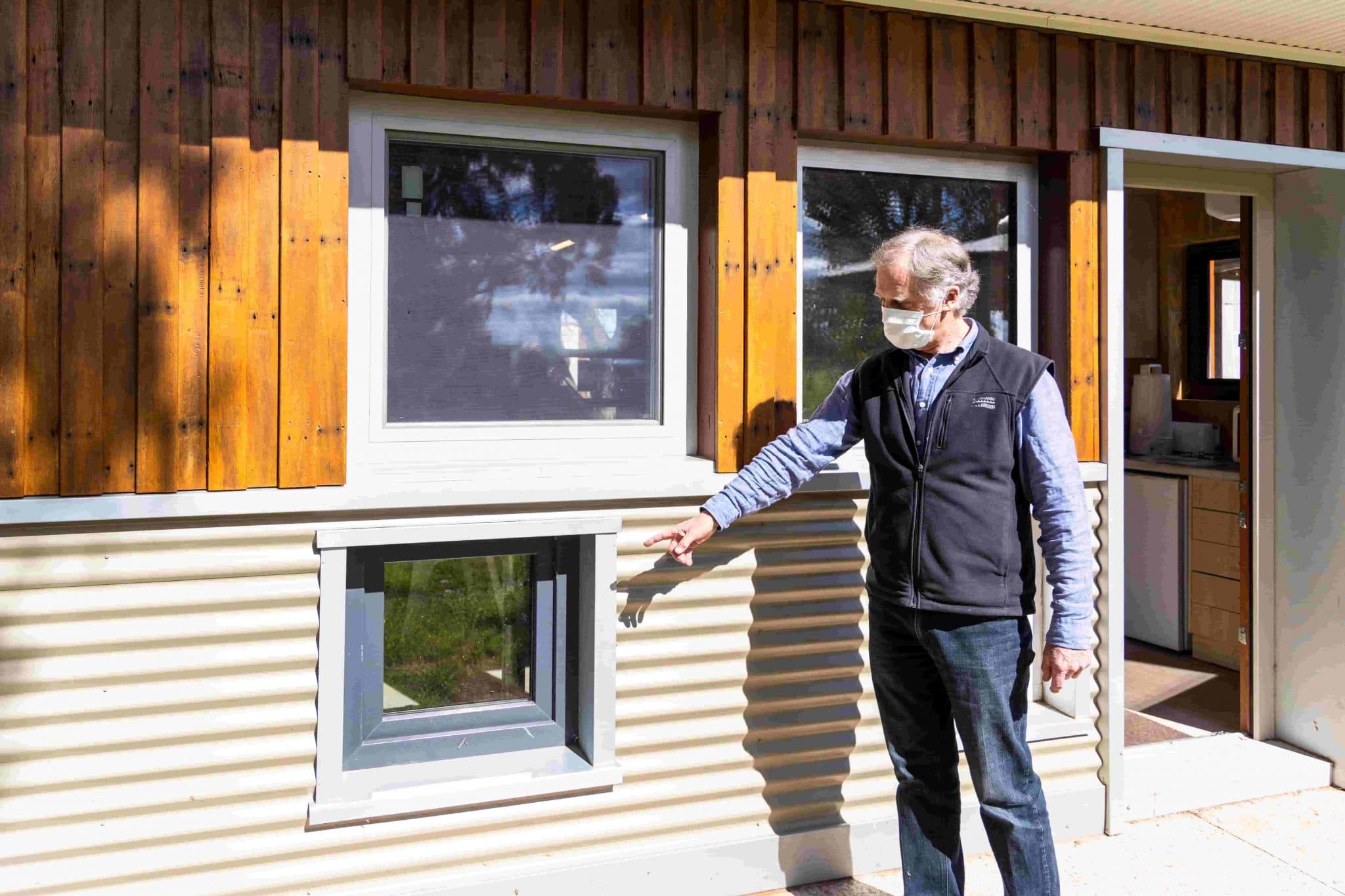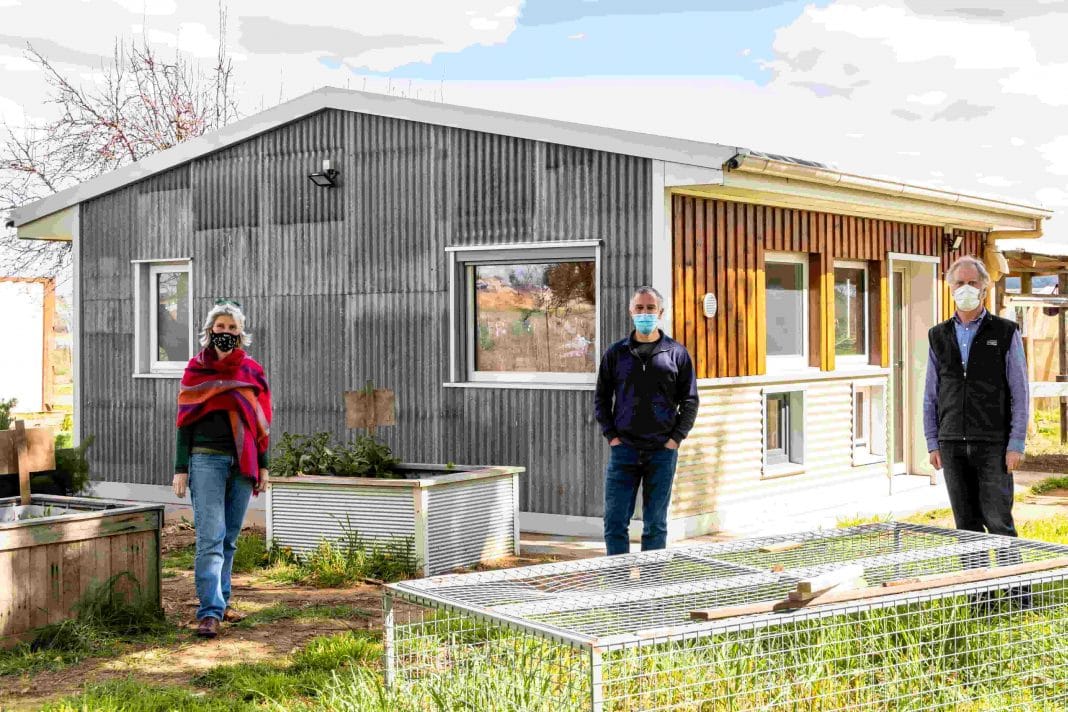In the hippie era of the 1970s, Leigh Duxson relocated to Canberra and, as a struggling student, bounced around from one uncomfortable house to the next relying on huge amounts of energy just to keep himself warm.
He knew there had to be a better way to live, and that better way was sustainable housing.
“I used to read the Club of Rome and what was happening to our world. I was extremely aware of how we were consuming resources, and how it couldn’t go on – I was horrified,” Leigh said.
“As an individual, it’s hard to know what to do about it but I chose to take personal action.”
After a lifelong engineering career and raising a family, Leigh retired and began working for an energy company aiming to advise people on how to use less energy in their house, while still remaining comfortable.
“Housing and transport are two key areas where people can make a big difference to their consumption and their comfort with heaps of side benefits too,” he said.

“Maintaining your health is one of those side benefits. If you can get a building that improves the health of people, then that’s the way to go.”
After retiring, Leigh had more time on his hands to create a sustainable building of his own and so the Low Energy Super Shed was created.
“Instead of building a new shed, we modified an old one to show that it is possible to build a Passive House building from any existing structure. In the rebuild, wherever possible, we used second-hand or unused materials with the intention of making it as close to the Passive House Standard as we could,” Leigh said.
The Passive House Standard is an international criteria for a building to be considered a passive house, meaning they are a comfortable temperature all year round yet require very little energy.
“We left the wall, roof framing and concrete floor in place and added assorted second-hand windows when they were available, and unused doors, windows and a variety of wall cladding material from donors such as the 80-year-old corrugated iron from an old, demolished building,” Leigh said.
“We reused some old decking timber for wall cladding and installed a second-hand kitchen when a donor was throwing out her old one. As luck would have it, it had a ply external face which matched the walls and was a reusable material – even the breathable membrane and insulation materials inside the walls are reusable!”
Leigh laughs when asked what would be his favourite part of the shed. “What’s there not to love?” he replies.
“I love it all but at the moment in this Covid world, it’s comforting to reflect on the fact that this structure constantly flushes out old, stale air and any of the Covid germs with it, replacing it with fresh, filtered air,” he said.
“I also like the fact that we have shown different materials on the outside wall to demonstrate that you can use any external cladding material you like, and it makes no difference to the building performance; all they do is keep the rain out.”
Leigh could go on for hours talking about what he loves about the shed but alas, there would just be too much to mention.
One important fact about the shed is it’s the only place in Canberra where members of the public can come and view a Passive House structure on a regular basis and learn about how it’s built.
“It’s given experience to a number of people who have now since begun building their own Passive House, and we hope this will continue when we start to run workshops,” Leigh said.
He has plenty of advice for anyone looking to build a Passive House and said the most important thing first and foremost is to choose a certified Passive House builder because they fully understand what is needed.
“A Passive House will cost you about five to 10 per cent more to build than a standard house but you will never regret it. You will live in a mould-free, moisture-free, healthy and warm house with 100 per cent fresh air,” he said.
“Your family will be healthier, and your energy bills will be 80 per cent less than those with a normal house.”
Get all the latest Canberra news, sport, entertainment, lifestyle, competitions and more delivered straight to your inbox with the Canberra Daily Daily Newsletter. Sign up here.



